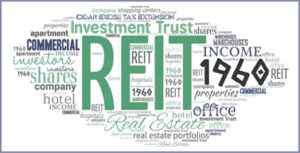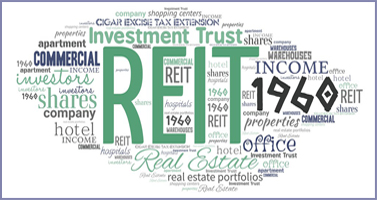This is for education purpose and the story is made up to simplify the concept, don’t take it at face value.
Lets say I am a Real Estate developer, K Raheja. I like a land in Mumbai & Hyderabad for some commercial development. I decide to buy it. Where will I get the funds to buy & construct it?
-
Self
-
Bank, NBFC, MF – Debt
-
Partner – someone else investing as Equity

So I invest some funds, got some from banks & MF’s & I also got Blackrock to invest to buy the land & make the business park called Mindspace. I constructed around 23-mn sq ft with multiple building & I started leasing them out to companies who wanted rented office premises.
There comes a point where I needed more funds to build new building (6.4 mn sq ft), pay off the loans etc., where do I get the funds? So I decide to do an IPO. Not of the entire company K Raheja but only this project called Mindspace. So I formed a trust or corporation.
I committed to payout 90% of my rent income to the shareholders proportionately as dividends & I will use this money to invest a minimum 80% in completed real estate, which is generating rent and will use 20% in constructing new Real Estate.
Is the IPO a win-win?
-
K Raheja gets more money 2 pay off debt, investment in more commercial real estate.
-
Investors will receive dividends semi annually (from the rent income) which is tax free + as its listed on the exchange the stock prices can go up.
Why will the stock price go up?
-
Rents increase year after year
-
The value of the land increases
-
New construction means more business.
Why invest in a REIT?
-
G-Sec is at 6% and the rent yield in commercial RE is 7.5%-8%
-
Diversification – It’s a combination of Debt (rent income) & Equity (listed so prices can move)
-
Investment in RE with just 50K.
Tax Structure?
There are 3 types of income,
-
Rent–Tax-free
-
Interest – REIT’s can also loan money to another developer (maximum 20%) & receive interest. If you receive interest from the REIT, It will be taxed at the slab rate. Practically this is very less or zero.
-
Capital Gain on the stock exchange – 15% Short Term Capital Gains Tax if you sell the REIT before 3 years and 10% Long Term Capital Gains Tax if you sell the REIT units after 3 years.
-
Capital Gain on the stock exchange – 15% Short Term Capital Gains Tax if you sell the REIT before 3 years and 10% Long Term Capital Gains Tax if you sell the REIT units after 3 years.
What to look for before investing in a REIT?
-
Weighted Average Lease Expiry – Higher the better
-
Vacancy Rate – Lower the better
-
Concentration of top 10 tenants – Lower the better
-
Sector Concentration – Lower the better.

REITs operate exactly like MF’s
-
Sponsor – K Raheja and Blackstone
-
Manager – K Raheja (receives AMC fees for managing the properties)
-
Trustee
But
REITs and real estate mutual funds are not the same.
Disclaimer: This is not investment advice.
Source: Kirtan A Shah, you can reach him on his twitter handle @kirtan0810


